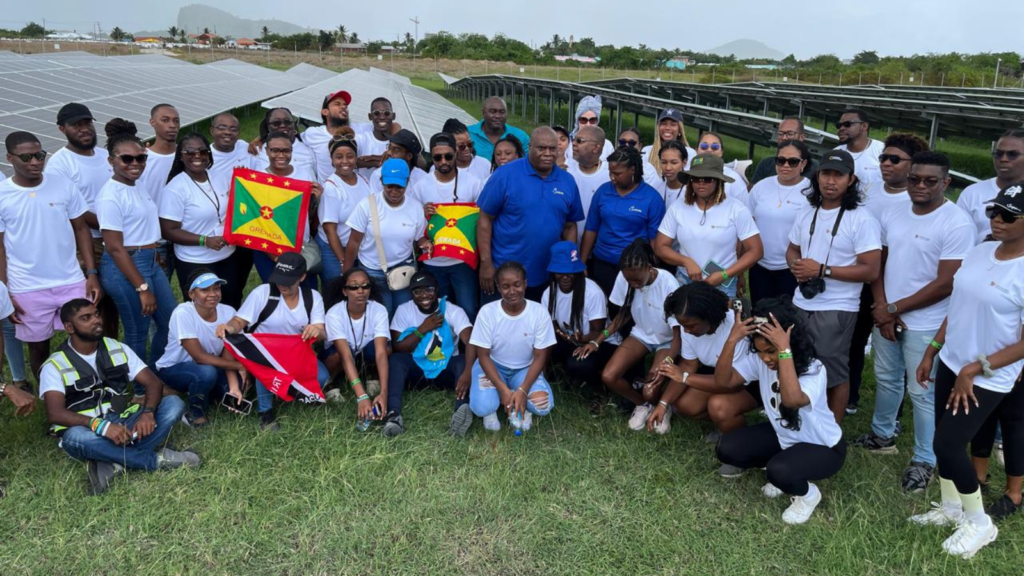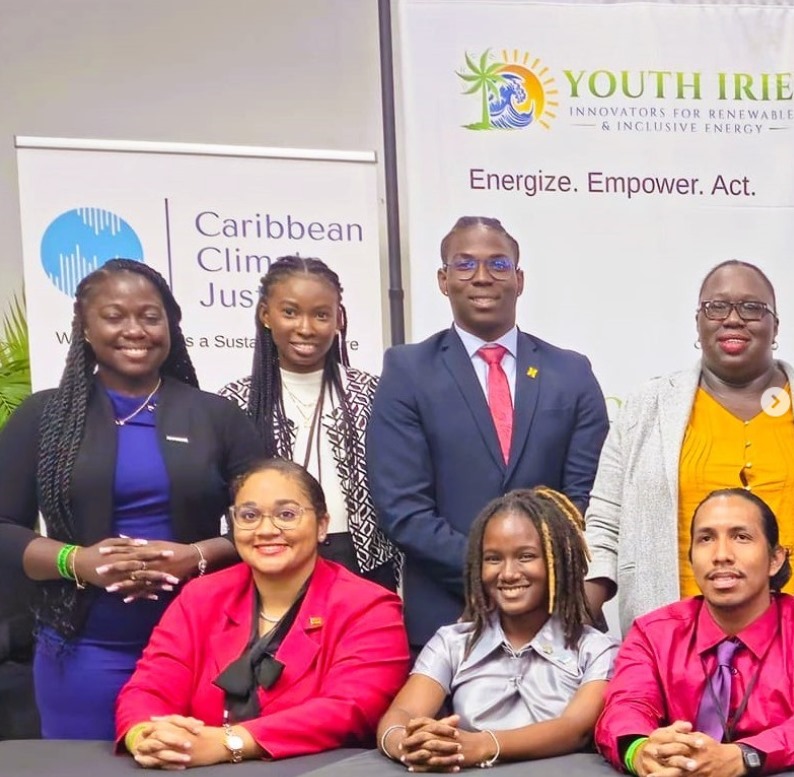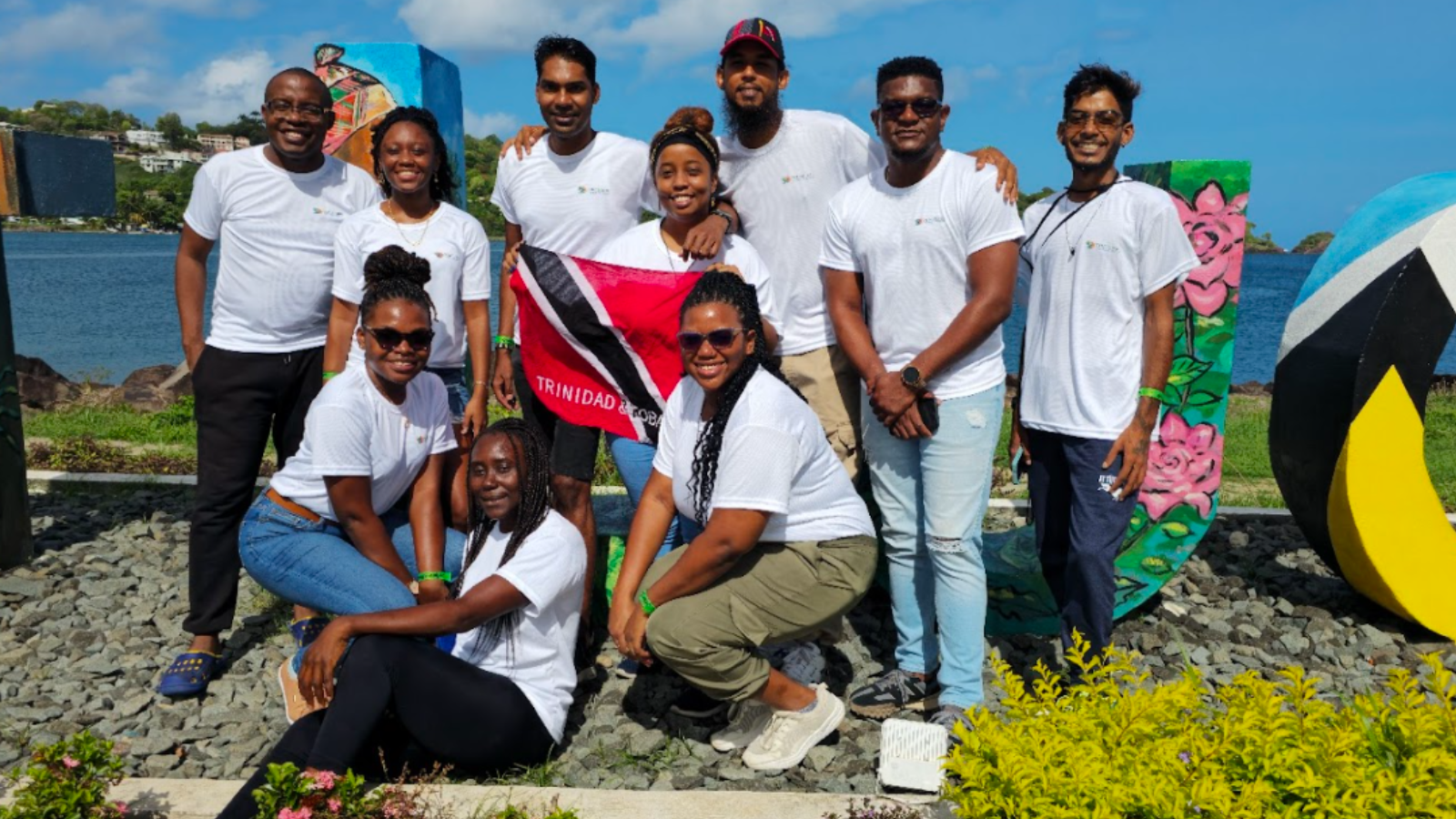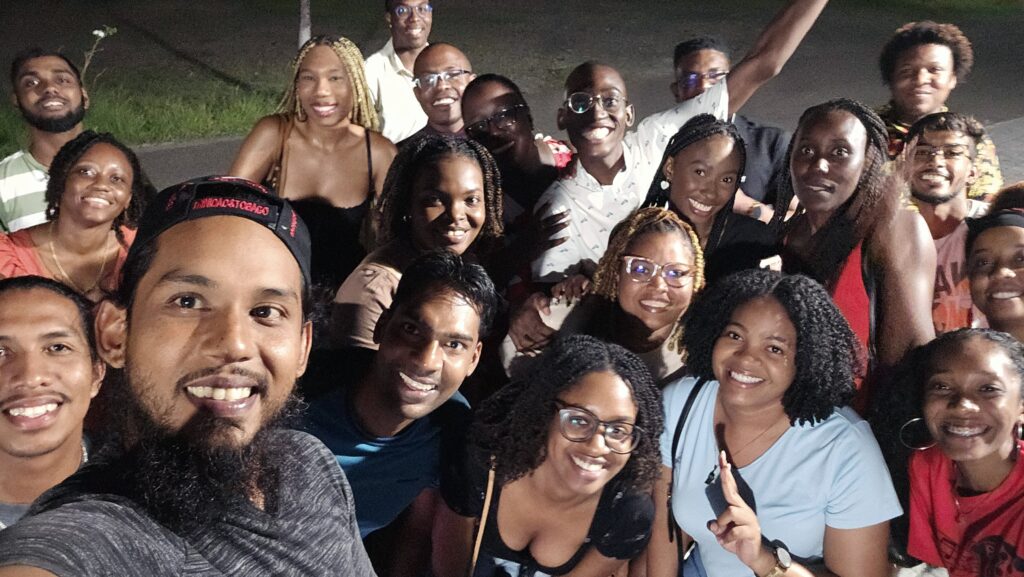“We need climate action, not apathy,” was the closing line of Garry Auguiste’s presentation at the Youth IRIE 2024 Parliamentary session. As a member of Dominica’s indigenous community, Garry, like his comrades at the event, spoke about the climate crisis from first-hand experience.
The Caribbean has faced the climate crisis through significant impacts and corresponding challenges. Rising sea levels accelerate coastal erosion, threatening homes, and infrastructure, while also causing more frequent and severe coastal flooding. Increasing temperatures pose health risks, such as heat-related illnesses and exacerbated cardiovascular and respiratory conditions, and warmer sea temperatures contribute to coral bleaching, affecting marine biodiversity and fisheries.
More frequent and intense hurricanes cause extensive damage to infrastructure, homes, and businesses, leading to significant economic losses and imposing high recovery costs on national budgets. Freshwater resources are under threat from changing precipitation patterns, leading to drought and water shortages.
Agricultural productivity is also affected, with unpredictable rainfall and extreme weather events negatively impacting crop yields and farming practices, threatening food security and livelihoods. Biodiversity loss is a critical concern, as climate change leads to habitat destruction and accelerates the extinction of vulnerable species, disrupting ecosystems.

The urgency for climate justice in the Caribbean is paramount.
Caribbean nations have contributed minimally to global greenhouse gas emissions, yet they are among the most affected by climate change.
This disparity highlights the need for equitable solutions where developed nations, historically responsible for higher emissions, support the Caribbean in adapting to climate impacts and transitioning to sustainable energy systems.

It is with this in mind, that Dr. James Fletcher, Founder of Soloricon, Elected Chair of the Caribbean Centre for Renewable Energy and Energy Efficiency (CCREEE), and Saint Lucia’s former Minister for Public Service, Information, Broadcasting, Sustainable Development, Energy, Science, and Technology, kicked off the Youth IRIE (Innovators for Renewable and Inclusive Energy).
Led by the Caribbean Climate Justice project, in partnership with the Caribbean Regional Youth Council, and funded primarily by the Pooled Fund on International Energy (PIE), Open Society Foundations, and the Clara Lionel Foundation, Youth IRIE 2024 took place in Saint Lucia from 7th -10th June 2024 and saw 42 young professionals from Anguilla, Bahamas, Barbados, Dominica, Grenada, Guyana, Saint Lucia, St Vincent and the Grenadines, Trinidad and Tobago come together to network, learn, and share information about the regional energy transition movement.
It also involved a series of pre-convening webinar sessions, which engaged 130 participants and were free and open to all Caribbean youth interested in learning about sustainable energy, opportunities in the Blue and Green Economy, and climate justice.
Climate Tracker was honoured to participate in this initiative, offering insights into media and storytelling opportunities for youth and discussing the energy transition challenges facing the region.

Harnessing youthful energy
According to Dr. Fletcher, “The Youth IRIE convening was designed to educate and raise awareness among Caribbean youth of the issues related to climate justice, sustainable energy, and the need for fairness and equity in the energy transition. It also sought to expose Caribbean youth to young people like themselves, who are active and influential in the climate and renewable energy spaces to inspire them to get more involved and committed to the cause of climate justice and energy transition.”
It was not a talk-shop.
Continuity is the name of the game. The next phase will entail supporting small, community-based projects led by the delegates who attended the conference or participated in the three webinars. These projects will enable Youth IRIE members to share their newly acquired knowledge and aim to influence attitudes, behaviours, and practices within their communities.
Additionally, one of the core tenets of the convening was to increase the participation of young people in policy and decision-making in the Caribbean in the areas of climate, energy, and sustainable development.
“By engaging with agencies like the Caribbean Community Climate Change Centre, the Caribbean Centre for Renewable Energy and Energy Efficiency, and the Rock Mountain Institute, who participated either as sponsors or presenters, Youth IRIE intends to sensitise these agencies to the concerns of Caribbean youth and also make it easier for Caribbean youth to interact positively and constructively with these agencies,” Dr. Fletcher shared.

On the last day of the convening, participants engaged in a Parliamentary session, which saw a resolution passed on sustainable energy and climate justice. This resolution will be circulated to all regional agencies and the relevant international agencies so that they have a record of the views of Caribbean youth on this crucial matter.
Caribbean youth are doing the work
As Dr. Fletcher highlighted, the renewable energy sector offers numerous opportunities for innovation, and some Caribbean youth are already actively involved. However, it is essential to create more pathways to recognise and utilise the efforts of these current innovators. Platforms like Youth IRIE should be established to inspire and motivate more young people to contribute their creative energies to this field.
“Our tertiary education institutions and our universities need to facilitate and promote innovation and research in sustainable energy and in developing nature-based models and initiatives for adaptation. We also need to encourage the incorporation of traditional and indigenous knowledge in devising solutions that fit and will work in our Caribbean ecosystems.”
Why climate justice? Why youth?
Young people must be at the core of the climate justice movement. The long-term stakes are higher for them, as the consequences of climate change will disproportionately affect their future lives, careers, and environments. Including youth ensures that the solutions developed today are aligned with their needs and aspirations, adhering to the principles of sustainable development and generational equity.
According to Dr. Fletcher, the rationale for involving youth in the climate justice movement is clear: they have the most at stake if we fail to limit the long-term temperature rise to 1.5 degrees Celsius. As a result, the world they will inhabit, work in, and govern will be significantly harsher and more perilous than that of their parents, especially for those from Small Island Developing States (SIDS). Climate justice is fundamentally about “ensuring there is fairness and justice in addressing the impacts of climate change” on individuals in SIDS, with a focus on vulnerable communities.
Moreover, young people bring unique perspectives and fresh ideas to the table, which are crucial for addressing complex climate issues. Their involvement ensures a diverse range of voices and more comprehensive, inclusive solutions.

Dr. Fletcher urged that Caribbean youth recognise this as their fight, a crucial battle for both their present and future because it is essential to uphold the core principle of sustainable development: not compromising the ability of future generations to meet their needs.
To effectively tackle the climate crisis, Dr. Fletcher stated that “we require the passion, energy, enthusiasm, creativity and commitment of our youth. This engagement is vital to successfully addressing the greatest threat to our civilisation – the climate crisis.”